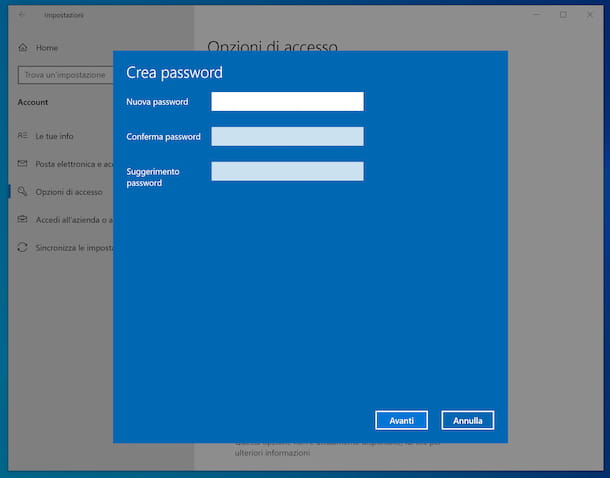Telling great historical periods through compelling strategy games has always been the goal of Paradox Interactive. The Swedish software house, over the years, has led us to the heart of Medieval Europe, in the midst of the bloody crusades and riots of the Second World War. Today, more than 10 years after the release of Europa Universalis: Rome, Paradox Interactive once again offers us the glory of the Roman Empire with Emperor: Rome.
The dear old world
Imperator: Rome is a strategic video game (Grand Strategy) set during the first Roman Republic in 304 BC The Samnites were defeated and Rome prepares to conquer much of the known world that represents the huge game map: from Iberian Peninsula, passing through the Phrygia (current Turkey) up to India, for a total of over 7000 cities available. Players wishing to undertake Single Player campaigns are directed towards six possibilities: Rome, Egypt, Carthage, Macedonia, Phrygia andSeleucid empire. However, it is also possible to start playing by choosing one of the 400 states available. From bigger ones like the Cappadocia or l 'Maurya Empire up to single cities, even small ones, such as Knot o Ancona.
Each state is divided into cities which are in turn grouped into regions. Owning an entire region provides some strategic advantages such as the ability to appoint a governor or initiate extra trade routes. The choice of state, in addition to determining your geographic location, also determines the culture, religion, actions and random events that may occur. For example, the Qatar will have the opportunity to form the state of Yemen once certain regions have been obtained, SIRACUSA can choose to unify Sicily under his own banner, Sparta he can found Arcadia or choose to reunite Alexander's Empire and so on.
Gravity, Virtue, Dignity…
Once you have chosen the state, you immediately get to the heart of the action, so you will have to organize and control the territories assigned and those conquered. Your empire will have two types of resources with which to develop: the treasure real, necessary to carry out most of the actions and the Workforce, necessary for the creation of the battle troops. Over the years and based on your actions, the indicators of Stability, which provides you with positive or negative buffs across the Empire, Aggressive expansion, which will change your reputation in the eyes of other states, e Tyranny, the level of oppression against the people.
The power and development of your Empire will also be dictated by four types of powers:
- Military (Virtus); necessary to develop military traditions.
- Civil (Gravitas); to empower their nation through the development of technologies and inventions.
- Oratory (Dignitas); indispensable for diplomacy and for modifying laws and types of government of one's state.
- Religious (Pietas); to receive the blessings of the Gods and keep the morale of the people high.
A series of panels it will give you access to all the functions you need to organize and control yours government, le military troops, i trade, la diplomacy and choose yours governors. The amount of options and sectors to be kept under control are many and at first glance, very complicated. Fortunately, a rich and comprehensive Tutorial is available to fully understand all the most important game mechanics.
Wars, intrigues and betrayals
The tumultuous period of the First Roman Republic is accurately represented in Imperator: Rome through the constant state of alert we find ourselves in. There are many states and each one eager to grow and expand. While it is possible to play peacefully and acquire other states through diplomacy, war is always around the corner. Each action risks changing the view that other states have towards you by significantly increasing the strategic factor.
Le battles, both land and sea, take place directly on the playing field. The outcome is influenced not only by the number of troops, but also by morale, the conditions of one's government and the ability of the general to command. During a war the troops can invade the provinces of others and put pressure on the conquest of the same regions in a hypothetical peace agreement. But be careful! Every war threatens to quickly deplete your kingdom's treasure and labor force. Furthermore, in the event of an extraordinarily long war, the people will be more inclined to rebel causing internal imbalances.
The most dangerous enemies are, in fact, within your government. Each official or member of an important family has its own value of popularity, corruption e fidelity. If a popular character's loyalty drops to critical levels, this could start a civil war with the aim of ousting you. A highly corrupt governor, on the other hand, risks draining your coffers or even favoring an enemy in the event of war. Important characters must therefore be kept under control by making friends with them, rewarding them or, if necessary, having them arrested to eliminate their influence on the people.
All the right ingredients
The atmosphere, involvement and the strong strategic component by Imperator: Rome are all the features that made us love this chapter. Paradox Interactive has once again managed to offer a quality product. Although no particularly innovative game mechanics have been introduced, the large amount of choices and elements available allows you to enjoy long game sessions. The game once again uses the Clausewitz Engine developed in 2007 by the same company, adapted in a modern and pleasant way. Except for some frame drops, when the maximum speed is set, the game runs pleasantly without any particular type of bugs.
The software was also used for the first time for this title Jomini, also developed by Paradox Interactive itself. Jomini allows the creation of against from users supported by Steam. This bodes well for a large amount of extra community content as well as future official DLCs that we're sure won't be long in coming.
Also noteworthy is the sound sector with captivating music and triumphal melodies. However, we would have liked to hear the voices of the characters and the rulers, this would have greatly enriched our degree of involvement.
In conclusion
If you are passionate about strategy, Imperator: Rome cannot be missing in your virtual library. THEThe vast playing field, the atmosphere and the large amount of elements to keep an eye on can immerse the player in the fascinating period of the First Roman Republic.
Choose your empire and shape a new world!
Emperor: Rome
Pro 
- Huge map
- Great variety of states to choose from
- Strong strategic component
- Nice graphics and sound
Cons 
- Not very intuitive
- Resource accumulation times too long


























